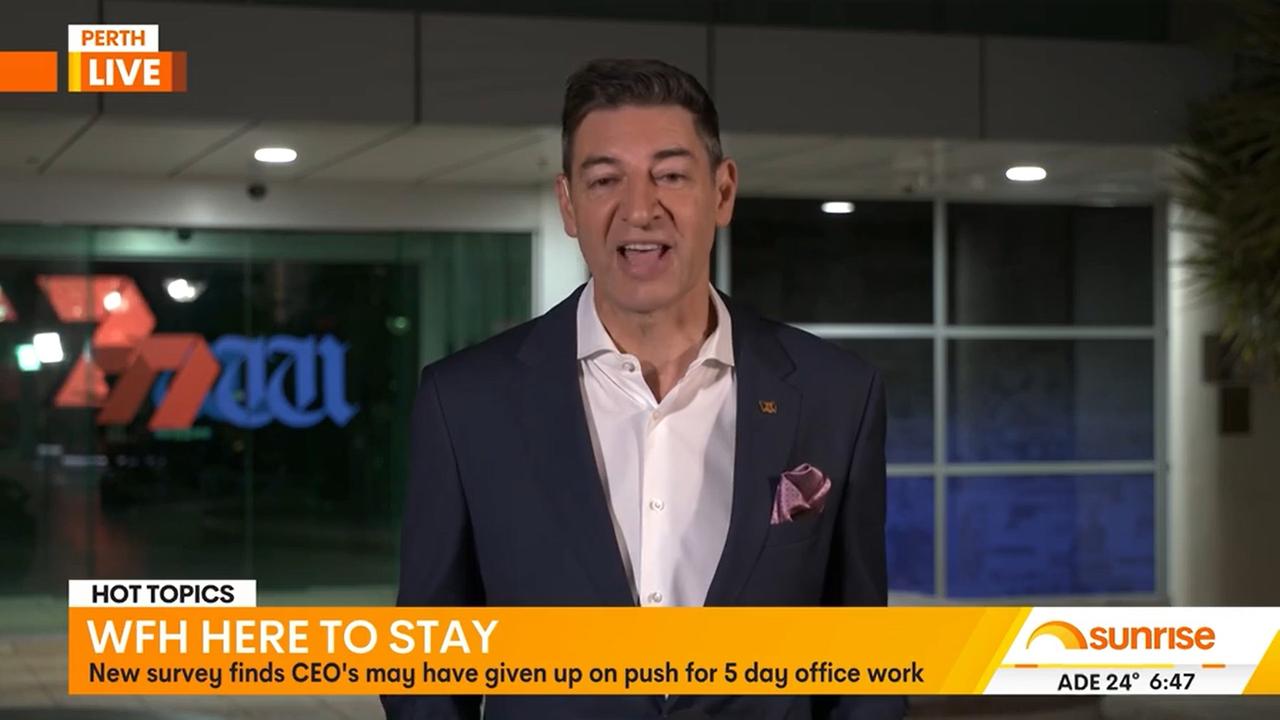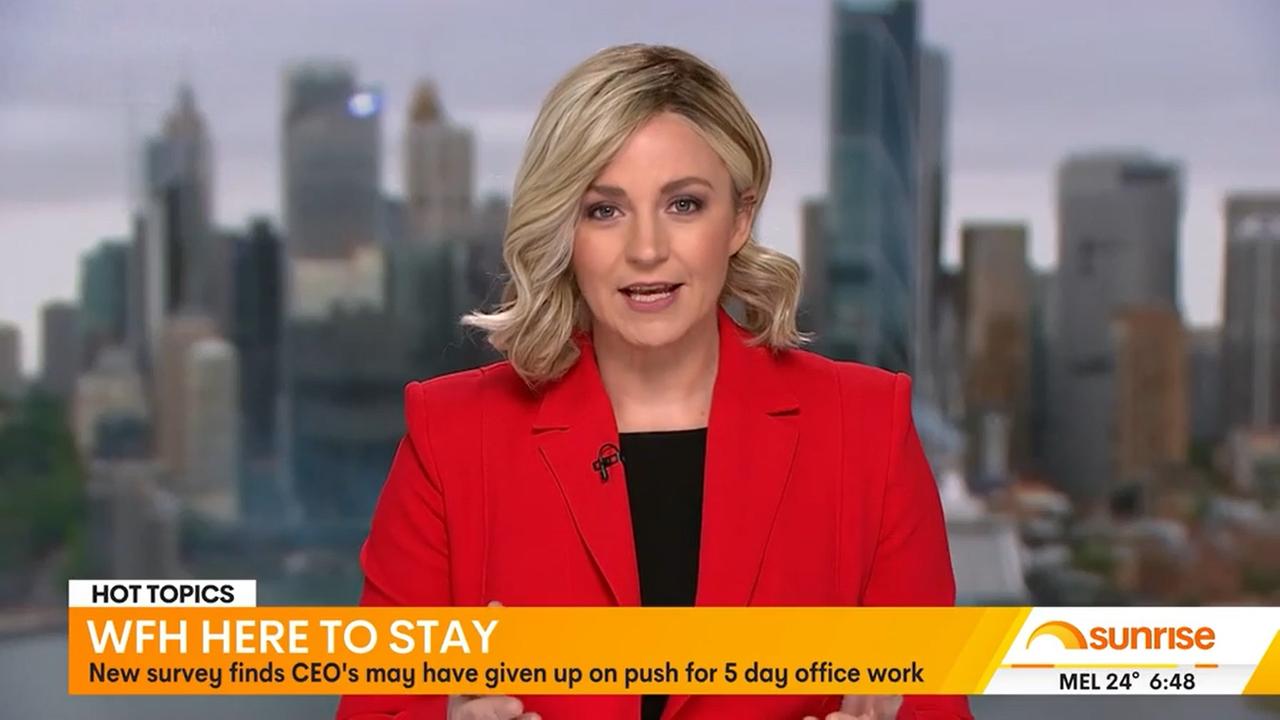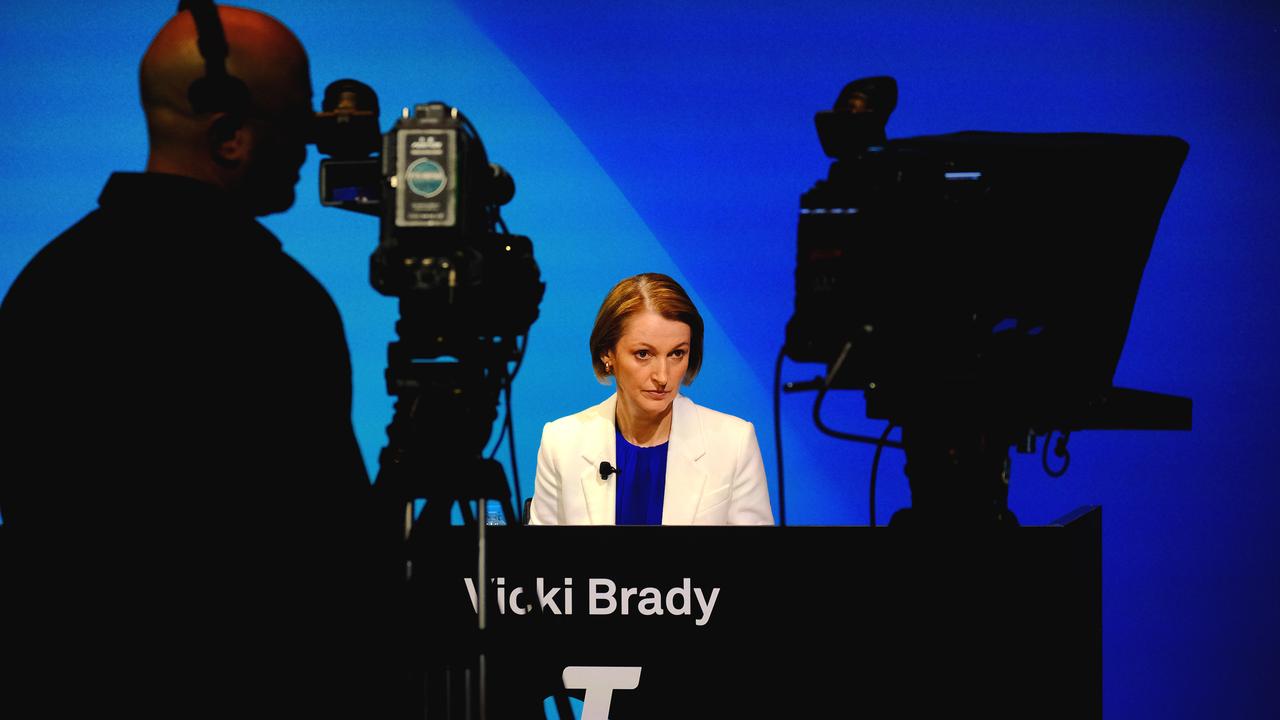‘People are at their best when they have a choice’: Aussie bosses give up on ending WFH
It’s official – a new survey reveals Australia’s top bosses have given up on the war against working from home as they accept a ‘new normal’.
At Work
Don't miss out on the headlines from At Work. Followed categories will be added to My News.
It seems the WFH war is over, with Aussie bosses ditching a push to bring staff back into the office.
Many have given up on the pre-pandemic working arrangement – accepting three days in the office will likely be the new normal, a new survey has found.
According to The Australian’s 2024 CEO Survey, a considerable number of large Australian companies have embraced a hybrid working model.
Over the past year, CEOs have steadily increased pressure regarding working-from-home policies, advocating for a return to the office.

In the survey, leaders gave evidence supporting the critical role of in-person collaboration for productivity, teamwork, and career development, particularly for younger staff.
However, for many, the horse has already bolted.
While working from home is resurging, with 37 per cent currently doing so regularly, the trend remains significantly below the peak of 40 per cent in August 2021 during Delta variant restrictions, as reported by the Australian Bureau of Statistics.
Work-from-office lord mayor reacts
Outspoken work-from-office advocate, media personality and Perth Lord Mayor Basil Zempilas reacted to the survey on Thursday morning. He said working from an office is the key to workers truly understanding their roles and workplace.
“I hope not,” Zempilas told Sunrise host Matt Shirvington when asked if a full working week in the office is a thing of the past.

“We want people working from our city offices. That is the lifeblood of any capital city, of any big city.”
He said working from the offices is the primary force behind a healthy workplace culture.
“It might be okay today, and it might be okay in the first few weeks, but when a new employee comes to a new office and doesn’t really know the culture of the place, how are they going to understand the workflows, the work pressures, and what is required at that workplace?
“So while some may have given up for the moment, I’m not convinced this is going to last
long term.
“The best place for employees is in the office with their fellow team members, where the culture of the office can really start to run.”
Mr Zempilas made headlines with his stance in September, declaring that metropolitan residents who work from home are “hurting your capital city” while also questioning their work ethic.

Fellow Sunrise panellist Amanda Rose, founder of the social enterprise Western Sydney Women, responded by stating work arrangements should be considered on a “case-by-case basis”.
“It is important to have people face-to-face and working with others; I agree with that,” she said.
“Although the hybrid workplace helps a great deal, especially with the working mums who are trying to juggle dropping kids off to daycare and school then come back home.”
What did Australia’s top bosses say?
Commonwealth Bank’s Matt Comyn said that since July a vast majority of staff have been spending 50 per cent of their working month in the office.
He said this struck a balance between “committing to flexible working and ensuring staff deliver the best outcomes”.
The CEO survey canvassed 70 executives across various sectors, revealing a consensus that three days in the office is becoming the new standard for the traditional five-day working week.
Some companies enforce this as a prescriptive policy, while others provide it as guidance.
“We believe this strikes a balance,” Damien Nicks — the CEO of energy company AGL, said. “It sets staff up for a connection, collaboration, and opportunities to learn.”

On the other hand, ANZ expects a minimum of 50 per cent of scheduled work time in the office but also acknowledges the need for a flexible, principles-based approach.
Several companies have adopted hybrid models, combining in-office and remote work.
Law firm Ashurst emphasises a balance, with most staff spending at least 60 per cent of their working week in the office.
Paul Jenkins, Ashurst’s CEO, said the office will continue to play a crucial role in collaboration and career development.
BHP’s Mike Henry recognised the impact of flexible work, describing it as a “game changer” in attracting more women to the workforce.
However, the miner maintains a guide of three days in the office to generate new ideas.
Wesfarmers CEO Rob Scott acknowledged that specific jobs, like retail and warehouse jobs, can’t be done remotely.

He emphasised that Wesfarmers’ highest-performing teams prioritise in-person interaction.
CEOs from various industries echoed the sentiment that a hybrid approach is essential for balancing flexibility and the benefits of in-person collaboration.
Telstra’s Vicki Brady noted the shift from flexible working to ensuring excellence in hybrid work, stating: “We know our people are at their best when they have a choice.”
Citi Australia has set a minimum requirement of three days in the office for its employees, according to a report by The Australian.
Insurance Australia Group said it allowed managers to decide the best arrangement for their respective teams, though senior leaders are expected to spend more time working in the office.
Santos said it was transitioning away from permanent work-from-home arrangements, emphasising the competitive advantage of human interaction and collaboration in their industry.
Tyro Payments’ Jon Davey said the company’s meeting rooms “certainly come alive between Tuesday to Thursday each week” — highlighting the challenges and increased demand associated with the shift to a three-day office model.
Originally published as ‘People are at their best when they have a choice’: Aussie bosses give up on ending WFH








